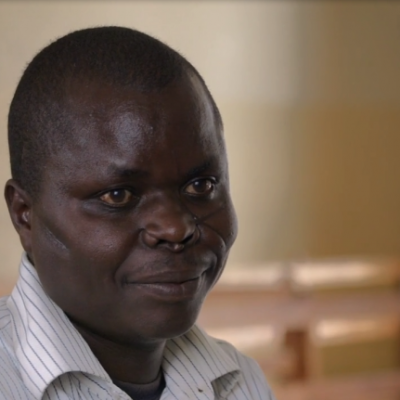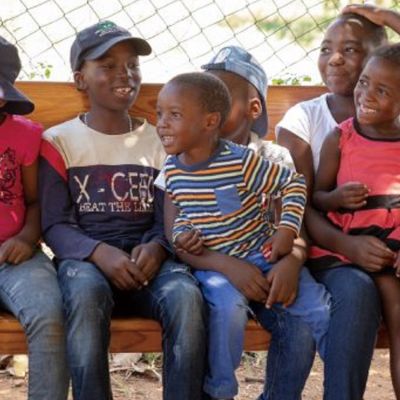Written by Clara Chiu (Head of Partnership Development)
In order to transform the society, we first have to give children a chance to grow up healthily so that they can become leaders of good character who obey God’s will.
We provide basic life and human rights protection, learning opportunities and spiritual courses for poor children in many countries in Asia, Africa and the Middle East. In the previous year, CEDAR supported 14 partners and carried out a total of 17 children and youth development projects. Among them, we have a 15-year-long project in Zimbabwe to empower children and families affected by HIV/AIDS in the suburbs of the local city of Mutare. In the first phase of the project (2004 to 2010), we focused on providing tuition assistance to the children. In the second phase (2010 to 2015), we helped the beneficiaries build up saving habits and provided them with microcredit, so that they could run small businesses to guarantee their families’ finance. In the third phase of the project (2015-2020), we supported children and youth to complete their studies, providing them with vocational training, and helping them develop family and small-group businesses. At the same time, we helped promote the development of children’s groups in local communities. In the previous year, the project has benefited 352 people.
The following is the story of a beneficiary Gani (pseudonym):
Gani was born in a poor village. She was abandoned by his mother with HIV/AIDS when she was three years old, and lived with his grandmother. In order for Gani to live a better life, her grandmother joined our savings group and loan plan. She learnt how to run a small business so as to improve the family’s economy. Our partner also provided nutritional supplements to Gani, arranged her into a Kids Club run by local supporting churches, and entrusted two care mothers to take care of her, so that she could grow up happily.
Around three years ago, Gani’s grandmother learnt that she was infected with HIV, and Gani felt helpless as she was only 11 years old at the time. The care mothers played a motherly role for Gani, accompanying her and taking care of her grandmother. Unfortunately, her grandmother passed away shortly afterwards, so the loving care mothers took on the responsibility of taking care of Gani.
Gani has joined the Kids Club since she was a child. The group has greatly helped with her development, and the visit of her peer mentor has given her a lot of encouragement and support. The group had a regular Bible study time and the members committed to living with God’s will. With the support of the group members, Gani performed well in school and demonstrated various potentials. Like many teenagers who had entered puberty, Gani also faced various growth pressures. Peer mentors and the care mother have guided her in a right path and became her long-term support.
Gani’s story showed that the growth of poor children depended on the collaboration of various stakeholders in the community. Since the start of the project, we were pleased to see that partners, churches, and community groups have devoted themselves to serve the needs of the children. For example, local supporting churches organised Kids Clubs, youth fellowships and Sunday schools for the children. When the children benefited from the project grew up, they paid back in children’s work in the community so the groups could be self-sustainable. In view of this, we believe that it is appropriate to “leave” (the funding for the project ended in July 2020) after planning and discussing with partners. Here we would like to thank all supporters of this project.
Content of this issue
Written by: Edward Lai (Senior Communications Officer) “I give you this calf as a mark of reconciliation” says Innocent, a survivor in the genocide in Rwanda. He scrubbed the calf’s body with grass, held the rope tied to the neck, and handed it to the “new master” – the one who had tried to kill him with a machete along with other mobs. There are still many clearly visible scars on his face. Among them, there are two cross-shaped scars on the left cheek, one extending from the forehead down to the nostril, and the other from the cheekbones to the right side of the nose. When he lowered his head, there were also many scars come from…
Written by: Bernard Wong (Assistant Professor (Theological Studies) and Associate Dean of China Graduate School of Theology, Board Member of CEDAR Fund) If a Christian has been wronged, other believers often encourage her to offer forgiveness immediately, for Jesus teaches us to “forgive a brother seventy-seven times.” We may think that a good Christian should endure unfair treatment, and ought to be forgiving under all circumstances. Did Jesus really mean that? “Seventy-seven times” is Jesus’ response to Peter’s question – “How many times shall I forgive my brother or sister who sins against me?”(Matt 18:21-22) However, in the previous passage, Jesus had just discussed the situation of “if your brother sins against you”. Therefore, “seventy-seven times” must be…
Written by Clara Chiu (Head of Partnership Development) In order to transform the society, we first have to give children a chance to grow up healthily so that they can become leaders of good character who obey God’s will. We provide basic life and human rights protection, learning opportunities and spiritual courses for poor children in many countries in Asia, Africa and the Middle East. In the previous year, CEDAR supported 14 partners and carried out a total of 17 children and youth development projects. Among them, we have a 15-year-long project in Zimbabwe to empower children and families affected by HIV/AIDS in the suburbs of the local city of Mutare. In the first phase of the project…





